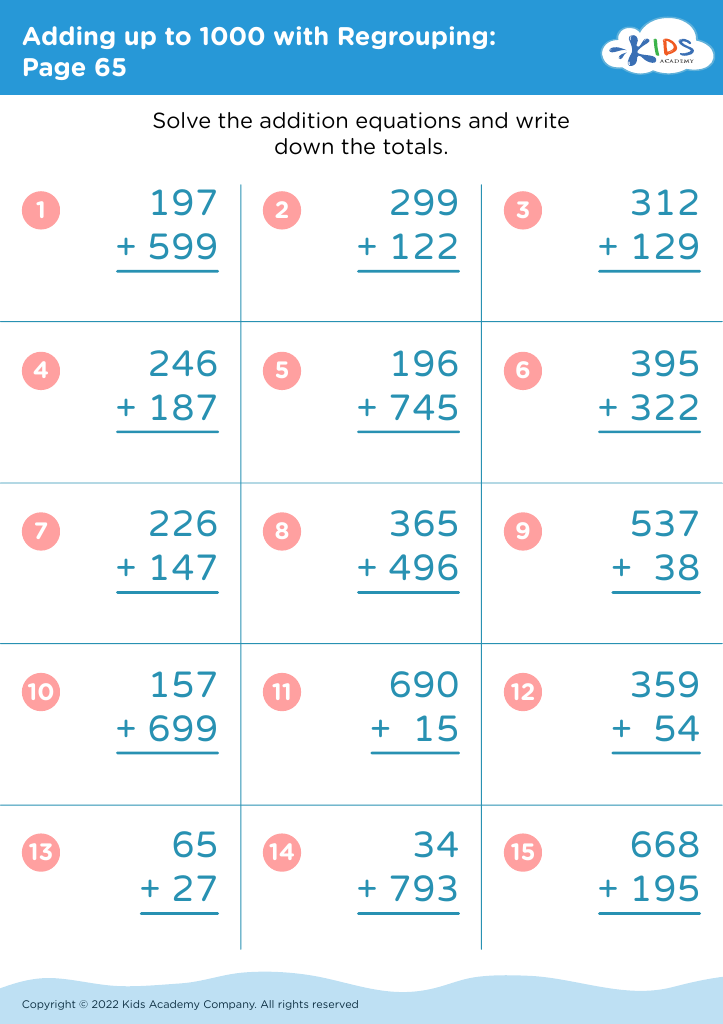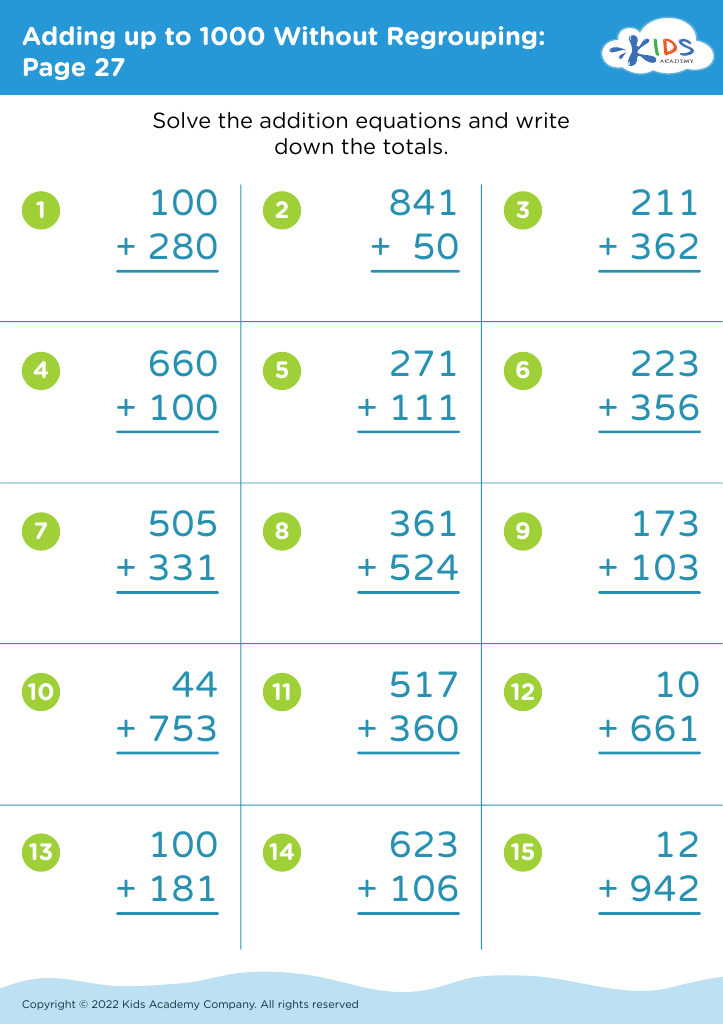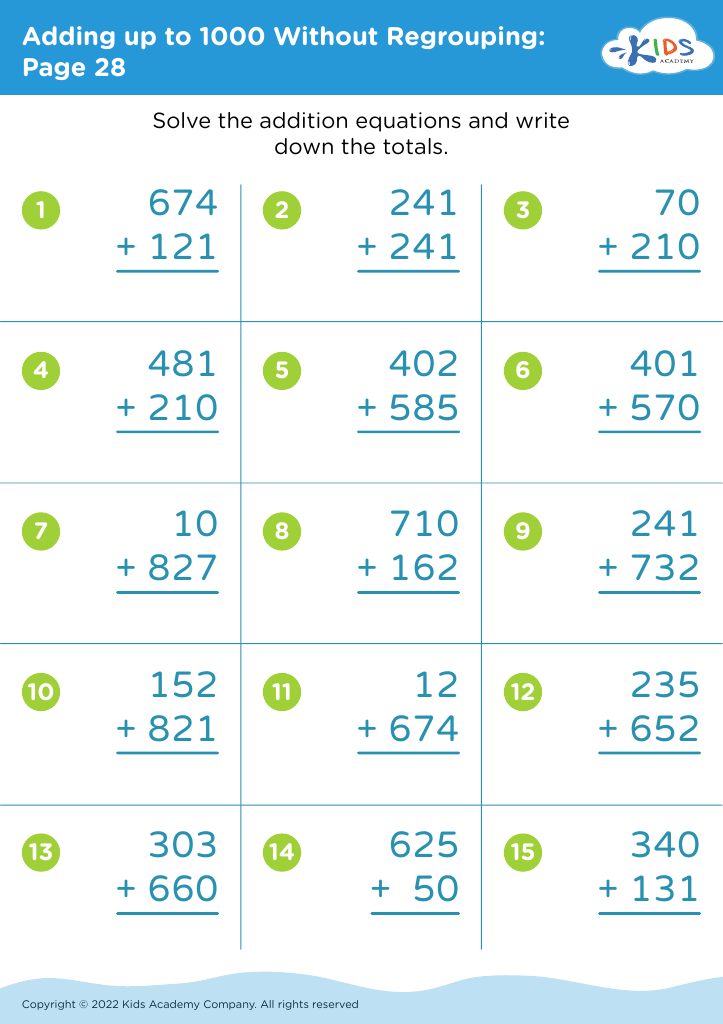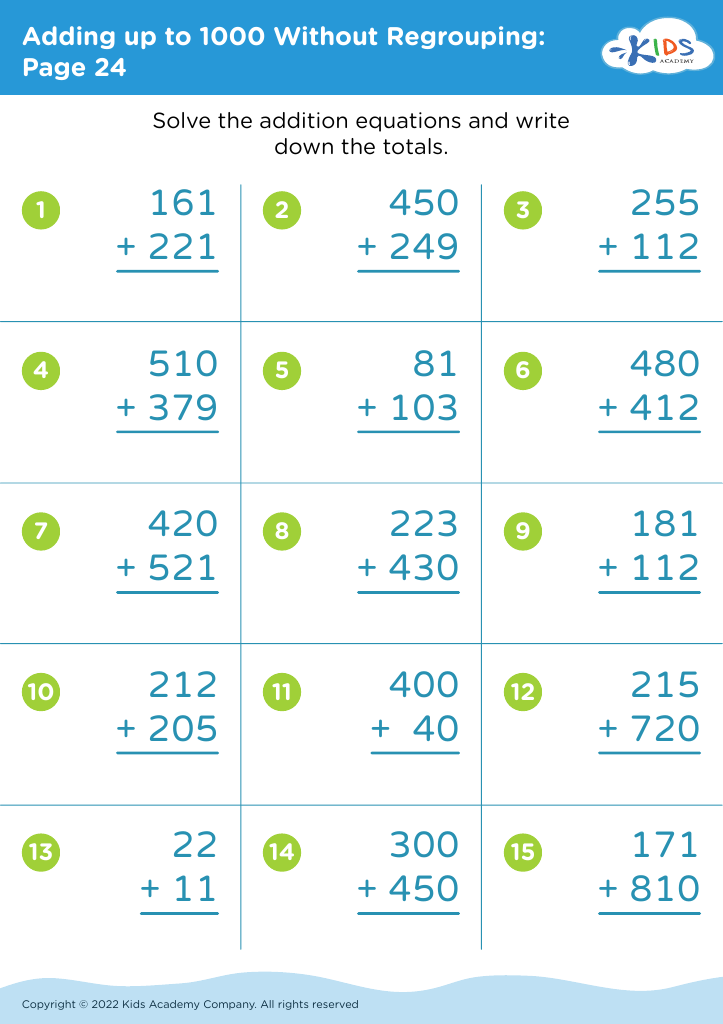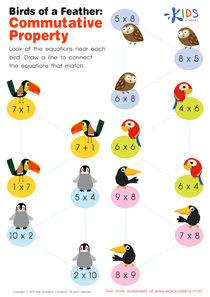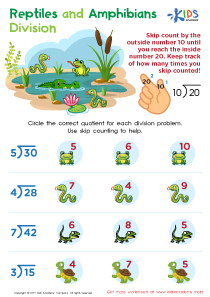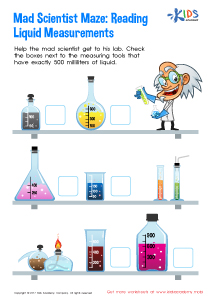Simplifying Fractions Grade 3 Addition & Subtraction Worksheets
6 filtered results
-
From - To
Welcome to our "Simplifying Fractions Grade 3 Addition & Subtraction Worksheets" page! These engaging worksheets are designed to help third-grade students master the concept of simplifying fractions while enhancing their addition and subtraction skills. With a variety of exercises, learners will practice reducing fractions to their simplest form and apply these skills in addition and subtraction scenarios. Our worksheets foster confidence and promote critical thinking through interactive problems aligned with grade-level standards. Whether for classroom use or home practice, these resources provide a fun and effective way for students to strengthen their math abilities. Start simplifying fractions today!
Simplifying fractions, especially in the context of addition and subtraction, is a vital skill for third graders that lays the foundation for more advanced mathematics. For parents and teachers, it is crucial to support children in mastering this concept due to several reasons.
Firstly, simplifying fractions helps students grasp the concept of equivalence, as they learn that different fractions can represent the same value. This understanding promotes critical thinking, problem-solving, and boosts their confidence when handling numbers.
Moreover, learning to add and subtract fractions reinforces students' arithmetic skills and enhances their ability to work with mixed numbers and improper fractions later on. Additionally, simplification makes calculations easier and more manageable, reducing the likelihood of errors and frustrations, particularly in higher grades.
Furthermore, proficiency in simplifying fractions encourages a positive attitude toward math, fostering a growth mindset. When students master these skills early on, they're more likely to engage and excel in subsequent mathematical concepts.
Thus, supporting third graders in simplifying fractions equips them with essential math skills that they will carry throughout their academic journey, ultimately instilling a more profound appreciation for mathematics and its real-world applications. Parents and teachers should prioritize this foundational understanding for future success.


